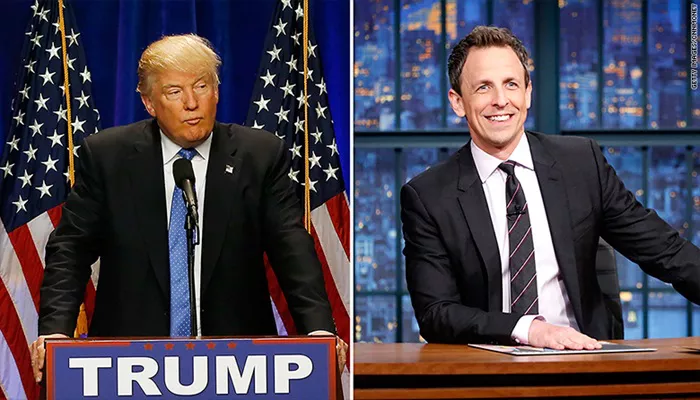President-elect Donald Trump escalated his attacks on the media earlier this week, focusing on comedian Seth Meyers after the NBC late-night host made jokes about him. This marks the latest example of Trump’s ongoing criticism of the press, and his response hints at his potential efforts to limit free speech and dissent once he assumes office next week.
Trump’s reaction followed a segment on Meyers’ show, Late Night with Seth Meyers, where the comedian mocked the president-elect during a regular feature called “Closer Look.” Meyers questioned Trump’s plans for his second term, stating that little is known about his intentions due to a lack of coherent policies or principles.
Trump took to his Truth Social account on Tuesday to lash out at Meyers. He called the comedian “bad,” a “moron,” and “untalented.” Meyers had compared Trump to an intellectual “Roomba”—someone who changes direction randomly, depending on what he encounters.
In his post, Trump argued that Meyers’ comments amounted to an unfair political attack on him and the Republican Party, despite Meyers focusing solely on Trump’s actions. Trump claimed that shows like Late Night were “political hits,” not entertainment.
Trump also targeted Comcast, the parent company of NBCUniversal, suggesting that it should face consequences for broadcasting Meyers’ criticism. He expressed that Comcast should “pay a BIG price” for what he sees as a biased portrayal.
Although Trump has often stated his support for a free press, he has consistently labeled the media as the “enemy of the people,” especially when outlets report on his controversial statements or policies. Trump has called for the Federal Communications Commission (FCC) to revoke licenses from media organizations that fact-check his claims.
His rhetoric has also encouraged hostility toward journalists. At a recent rally, Trump downplayed an incident where a man attacked reporters, telling his supporters the individual was “on our side.” In another instance, he casually suggested that an assassin would need to “shoot through” reporters to reach him, adding that he wouldn’t mind “that so much.”
While comedians like Meyers continue to critique Trump publicly, some media outlets are beginning to yield to his pressure. For example, ABC News recently settled a lawsuit with Trump, opting not to challenge his legal arguments, raising concerns that his attacks on the media are having a tangible effect.
Chris Lehmann of The Nation expressed concern, noting in an interview with Democracy Now that Trump’s influence on the media could set a troubling precedent for his second administration. “It sends a very distressing signal,” he said, referencing the media’s apparent willingness to comply with Trump’s demands before he even takes office.

